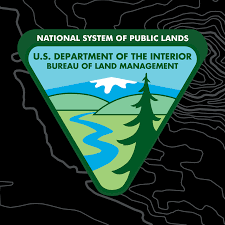Widgetized Section
Go to Admin » Appearance » Widgets » and move Gabfire Widget: Social into that MastheadOverlay zone
Western Slope public lands enter stage 1 fire restrictions Friday
The U.S. Bureau of Land Management’s Grand Junction and Colorado River Valley Field Offices recently issued the following press release implementing stage 1 fire restrictions starting Friday:

Bureau of Land Management Grand Junction and Colorado River Valley Field Offices will implement stage 1 fire restrictions effective 12:01 a.m. Aug. 2. BLM officials use specific criteria, including the moisture content of vegetation, weather outlooks, and human risk factors to make fire restrictions decisions.
“High temperatures and dry conditions have resulted in high fire danger throughout our area,” stated Upper Colorado River Interagency Fire Management Officer Tommy Hayes. “We have had numerous human-caused fires lately so please use caution while enjoying public lands.”
According to UCRIM fire management specialists, 51 human-caused fires burned approximately 1,510 acres and 46 lightning-caused fires have burned approximately 554 acres as of Monday.
Officers will enforce the following restrictions on all BLM public lands until further notice:
- No campfires outside of designated areas with permanent fire grates,
- No smoking except within an enclosed vehicle or building, a developed recreation site or in a barren area free of vegetation.
- No use of explosive materials, including explosive targets.
- No welding or operation of an acetylene or other similar torch with open flame except from an area that has been cleared of vegetation.
- No operation of any internal combustion engine, such as a chainsaw, without a spark arresting device properly installed and in working order.
Stage 1 fire restrictions only allow campfires in developed recreation sites, such as formal campgrounds or picnic areas where permanent fire grates are installed. In these areas, people must always monitor their fire and a have shovel and plenty of water, or dirt, available to put it out.
“A campfire isn’t out until the coals are cool to the touch,” said Hayes. “If it’s too hot to touch, it’s too hot to leave.”
Additionally, people should avoid parking in tall, dry grass; inspect trailers regularly to ensure chains do not drag; and only use off-highway vehicles with working spark arresters.
Fire restriction orders for the BLM Upper Colorado River Valley District are available on the district website.
Fire restriction violations are punishable by a fine up to $100,000, or imprisonment lasting up to 12 months, or both. (43 CFR 9212.4 and 18 U.S.C. 3571). Additionally, if a fire results from a restriction violation, the violator is responsible for paying the total suppression and damage costs.


